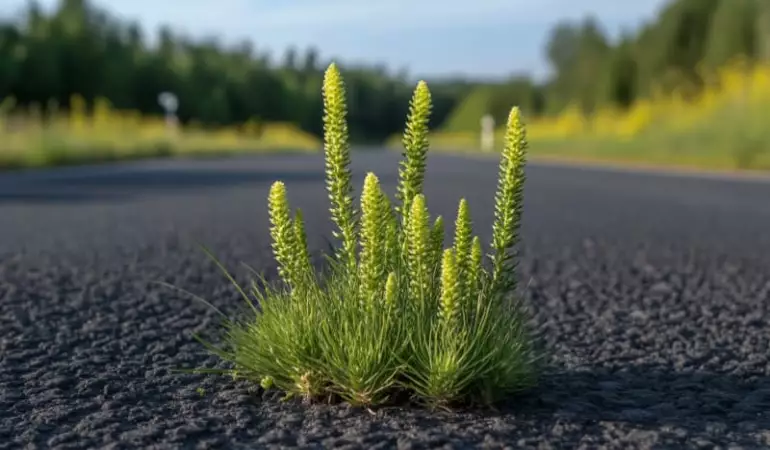Say goodbye to potholed roads: plants can renew asphalt
Whether you drive occasionally or it’s your daily job, potholes on the road are always a nuisance. But a recent scientific discovery could change that. It turns out that asphalt can regenerate itself. And all thanks to an unexpected ingredient: plant spores. Could potholes be a thing of the past in the future, and roads will always be smooth and safe?
March 01, 2025 07:01
Moss in the spotlight
Scientists from Swansea University in Wales and King's College London, in collaboration with colleagues from the University of Bío-Bío in Chile, have created an experimental material derived from moss.
As reported , researchers used machine learning algorithms to study how bitumen—the viscous black substance in asphalt—oxidizes and hardens in response to environmental factors.
It is known that when bitumen reaches a certain hardening limit, it begins to crack rather than stretch under heavy loads.
When bitumen hardens above a certain threshold, it begins to crack rather than stretch under heavy loads.
In order to heal the initial microcracks, so that they do not grow into larger ones and later form pits, it is necessary to rejuvenate the oxidized bitumen. This is where plant spores come to the rescue, more precisely, the spores of staghorn moss ( Lycopodium clavatum ).
Plant spores save the roads
Scientists used various chemical methods to remove the reproductive cells from these spores, which mosses produce and release as part of their reproductive cycle.
They then coated the spores with sunflower oil and added it to the bitumen used to make small asphalt patches.
When the asphalt was exposed to conditions that caused cracks in the bitumen, the spores exploded and released sunflower oil, which rejuvenated the oxidized bitumen and filled the cracks, which completely disappeared in less than an hour.
"Our research aims to replicate the healing properties observed in nature. For example, when a tree or animal is injured, their wounds heal naturally. Creating asphalt that can heal itself could significantly extend the lifespan of roads and reduce the need for constant pothole repairs," said Dr. Francisco Martin-Martinez, a researcher at King's College London.
Currently, researchers are working with cutting-edge Google Cloud artificial intelligence tools to simulate the behavior of bitumen under various environmental conditions on a computer, and have also developed a new data-driven model to accelerate atomistic simulations.




